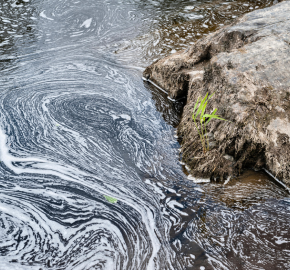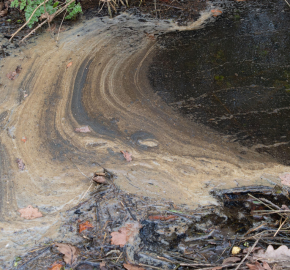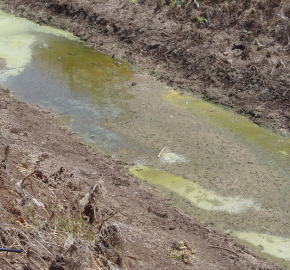WildFish (formally Salmon & Trout Conservation) takes legal action on Wye pollution
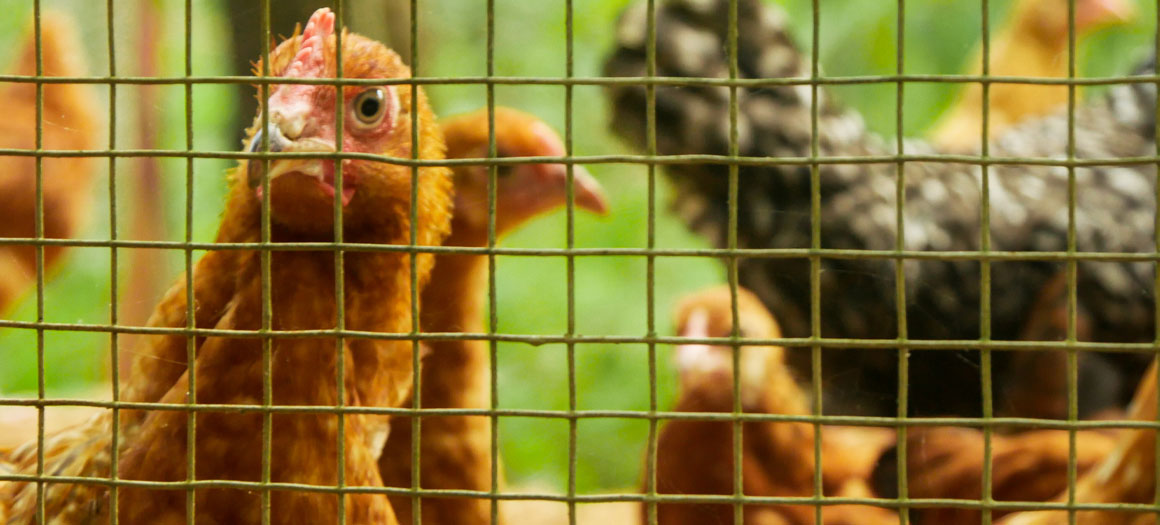
Legal notification of environmental damage submitted to the Environment Agency over damage caused by Welsh poultry sites, raising cross-border issues
Complaint also submitted to the Office for Environmental Protection on the Environment Agency’s unlawful failure to provide a complete register of inspection and monitoring of polluting sites, including intensive poultry units, in the Wye catchment
Our two actions are prompted by the persistent failure of the EA and NRW to carry out their functions as environmental guardians of this celebrated river with any real urgency or effect.
Legal notification of environmental damage
WildFish (formally known as Salmon & Trout Conservation) has formally notified the Environment Agency (EA) in England of damage being caused to the river Wye, including to the River Wye Special Area for Conservation and associated SSSIs, in England, with the source of the damage being Welsh poultry units introducing the excessive phosphate inputs to the headwaters of the Wye and its tributaries in Wales, particularly the river Ithon.
The Wye is suffering from algal blooms each year, caused at least in part by excess phosphate in the river.
A material source of phosphate pollution causing the algal blooms in the Wye, including the English and cross-border stretches of this river, is the high number of intensive poultry units in the Upper Wye catchment in Wales, including some larger sites permitted under the Environmental Permitting (England and Wales) Regulations 2016 by Natural Resources Wales (NRW).
The notification under the Environmental Damage (Prevention and Remediation) (England) Regulations 2015 raises cross-border issues, as WildFish considers that damage is being caused, or is being contributed to, in the English part of the River Wye SAC and associated SSSIs by permitted activities within Wales.
Fish Legal has already submitted a similar notification of environmental damage to NRW concerning the damage to both the Welsh and English parts of the Wye catchment.
Both notifications are backed up by an expert report commissioned by Fish Legal using Wildfish and Wye and Usk Foundation data which shows clear biosignatures of phosphate pollution downstream of high numbers of poultry farms on Ithon catchment and that, on the balance of probabilities, there is an association between the large numbers of poultry units there and phosphate levels on the Ithon.
The expert report concludes that NRW’s own data on phosphate is “porous” and more continuous monitoring and investigative monitoring is required. However, what little continuous monitoring is available demonstrates prolonged peaks of orthophosphate levels on the Ithon.
Guy Linley-Adams, Solicitor to WildFish said:
“The EA has a duty to protect the Wye in England.
If the problem is being caused, at least in part by poultry units in Wales, then the Agency must pursue that cause across the border.
That is what the law on environmental damage requires it to do.
Of course, the Agency will suggest everything is under control and they have a ‘plan’ – and ST&C is aware of the River Wye SAC Nutrient Management Plan Phosphate Action Plan produced jointly by NRW, the Agency and Natural England in November 2021 – but it is a threadbare document that leaves substantive action to reduced phosphate inputs to another day.
To refer to yet another plan, which isn’t much of an advance on earlier plans from 2014 and is equally likely to be left to gather dust, would be a wholly inadequate response to this notification.”
Nick Measham, WildFish CEO said:
“We are utterly fed up with the EA and NRW’s lack of action on the Wye. It is yet another example of failure to carry out basic functions of monitoring, inspecting and enforcing the law to protect a river.”
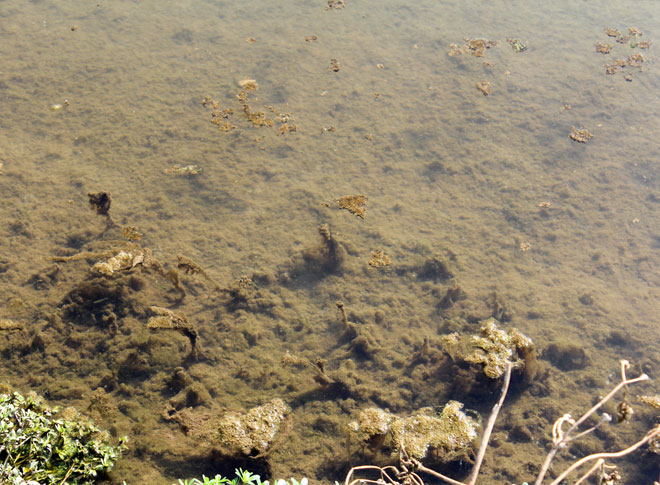
Photo: ©GettyImages
Complaint to the Office for Environmental Protection
As part of its detailed investigation of the poultry industry on the Wye, last year WildFish sought to find out what permits have been granted to intensive poultry units over the 40,000-bird limit under the Environmental Permitting Regulations 2016, and what monitoring, inspection, and enforcement the EA has carried out against those permits.
The EA has a legal duty to maintain a public register of permits, inspection reports and any enforcement action it has conducted. That register must, by law, be freely available for anyone to inspect.
WildFish attempted to scrutinize the permits and the EA’s activity against them, but it soon became very clear that the Agency had failed in its legal duty to maintain a public register as required by the regulations.
That duty relates not just to intensive poultry units but to all permitted sites (including sewage works, industrial sites and landfills).
WildFish has now issued a formal complaint to the Office for Environmental Protection covering the failure of the EA to meet its duty per Regulation 46 of the Environmental Permitting Regulations 2016 to maintain a public register containing the information required per Schedule 27 of those Regulations.
Guy Linley-Adams said:
“In May 2021, for S&TC, I requested access to the Agency’s public register so I could inspect it, as is anyone’s legal right. For months I had to chase the Agency about the inspecting the public register and was passed from pillar to post.
After nearly six months, finally I went to the Agency’s office near Lichfield at Fradley.
What I found there was both astonishing and appalling. Extraordinarily, the Agency was still using a 2003 vintage PC with Windows XP for its public register”.
“The computer was clearly inadequate for the task and would ‘freeze’ when any attempt was made to open any document. I was informed that the associated printer had not worked for some time. There was no way of downloading any documents.
It was completely obvious that the register had not been maintained, as required by law, and was incomplete to a very large degree, with huge gaps covering many years in relation to some permitted sites.
In practical effect, it was useless.”
The failures were raised by WildFish in a letter to Sir James Bevan on 14th October 2021.
The response (received 17th December 2021) confirmed that the public register relied upon “ageing computers in our offices”, was incomplete (both online and the version that is open for inspection in person), and that both the in-person register and an online version in development will remain incomplete, such that there is no reasonable prospect of the register being fully available – as the law requires – any time soon.
Guy Linley-Adams added:
“The very act of inspecting the public register provides the person inspecting the register with valuable insight into the extent of the Agency’s inspection, monitoring and enforcement regimes.
Importantly, an inspection of the public register does not enable any degree of ‘preparation’ of the response that an FOI-style information request to the Agency for information to be supplied electronically enables.
That is the whole point of having a public register required in law, and that is why the Agency’s failure is so concerning.
I can understand the Agency might well be a little sensitive about its lack of action on poultry units, but it must comply with the law.”
Nick Measham, added:
“Effective regulation of the threats to our endangered wild fish such as the Wye’s Atlantic salmon requires robust permits which are monitored, inspected, and enforced when required. We have no evidence that this is happening here.
Sadly, this is an all-too-familiar story of the Agency failing in its most basic of tasks. We are beyond frustrated with the EA’s pathetic responses to date and lack of real action on serious threats to the Wye.”
For all enquiries please contact:
Guy Linley-Adams | Solicitor to WildFish

